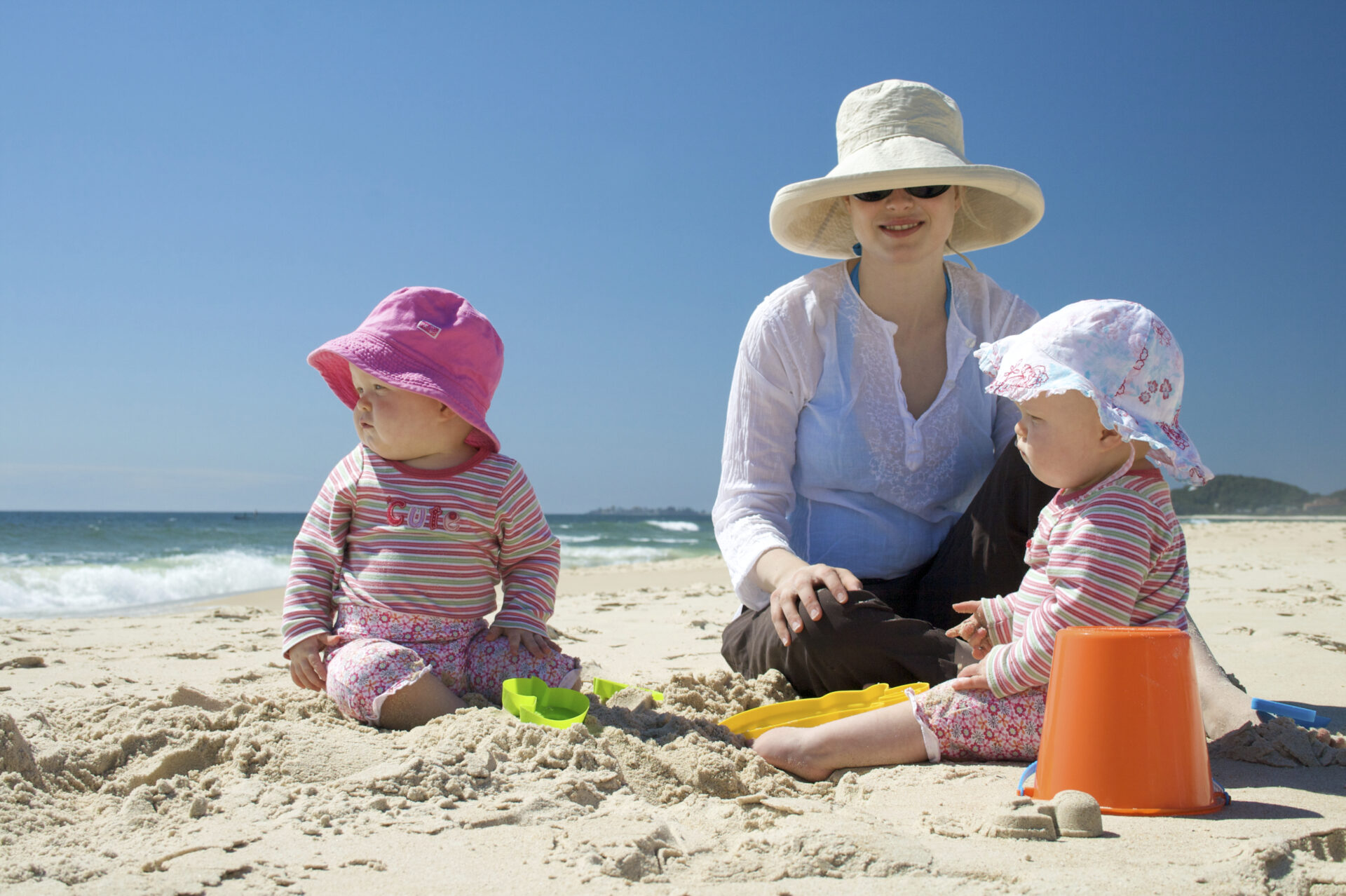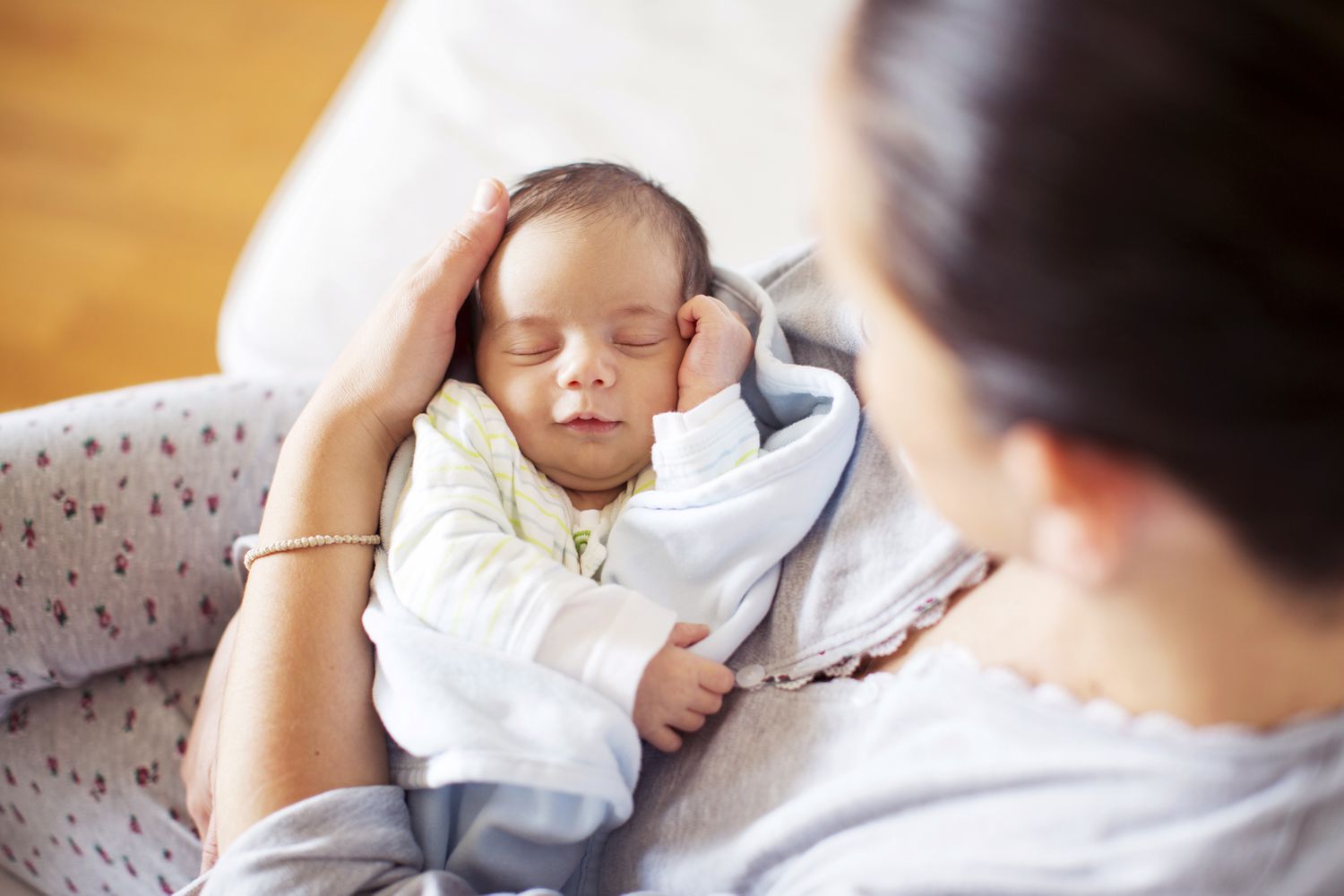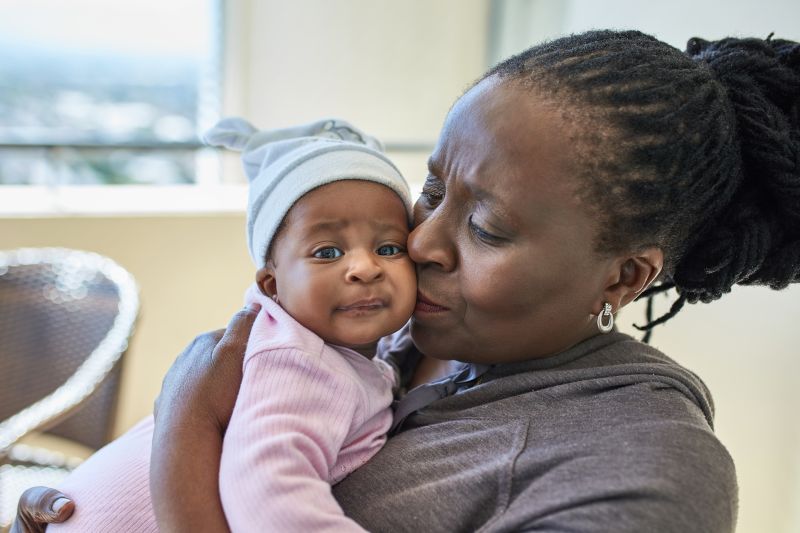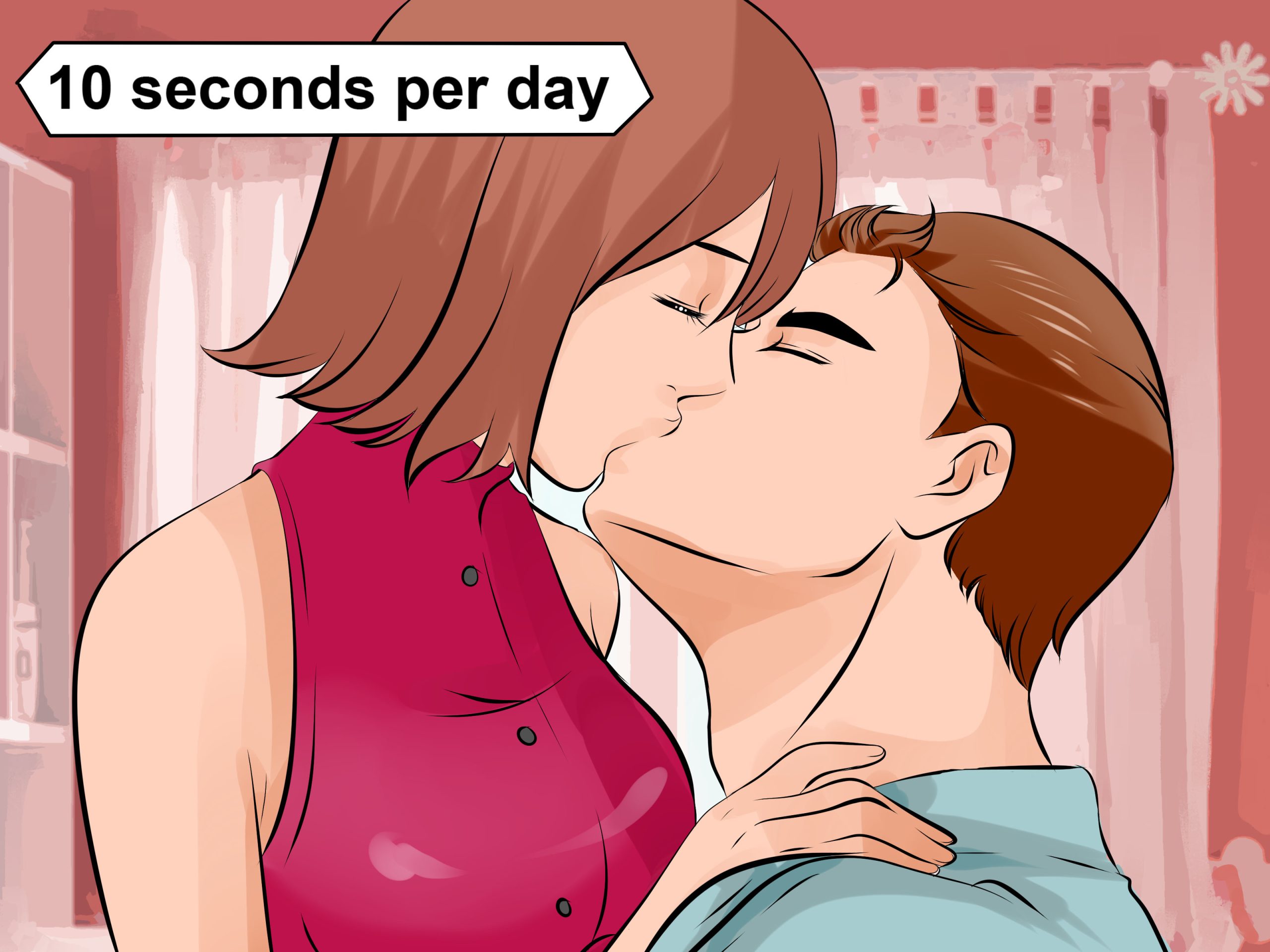How Many Months Can a Baby Be Outside?
A baby can be outside as soon as they are born, but it is recommended to wait until they are at least two months of age before taking them outside for extended periods. Welcoming a new baby into the world is exciting, but it also comes with a lot of responsibility, especially when it comes to their health and wellbeing.
Many new parents may wonder how soon they can take their baby outside. While there is no hard and fast rule, it is generally recommended to wait until the baby is at least two months old before taking them outside for extended periods.
This is because a newborn’s immune system is still developing, making them more susceptible to germs and infections. Additionally, extreme temperature changes can be too stressful for a newborn’s delicate body. However, taking short walks or trips outside for fresh air and natural light is encouraged as long as the baby is dressed appropriately and kept away from crowded areas.

Credit: www.skincancer.org
Factors To Consider When Taking Your Baby Outside
Taking your baby outside for some fresh air and sunshine can be an enjoyable experience for both parents and their little ones. However, there are several factors to consider before venturing out with your baby. Below are some key points to keep in mind.
Age Of The Baby
The age of your baby is an important factor to consider when taking them outside. Here are some guidelines to follow:
- For newborn babies, it is recommended to wait at least two weeks before taking them outside for extended periods.
- Babies aged three to six months are more susceptible to illnesses, so avoid crowded places and sick people.
- Babies over six months old can go outside and enjoy the fresh air in most weather conditions.
Time Of Day
The time of day you choose to take your baby outside can make a big difference. Consider the following:
- Early mornings and late afternoons are ideal for taking your baby outside, as the sun is not too strong.
- Avoid taking your baby outside during peak sun hours (10 am to 4 pm) to prevent sunburn and overheating.
- If you need to take your baby outside during peak sun hours, make sure to use a hat, sunscreen, and lightweight clothing.
Weather Conditions
Weather conditions play a crucial role when taking your baby outside. Here are some tips:
- Avoid taking your baby outside during extreme weather conditions, such as very high or low temperatures, heavy precipitation, or strong winds.
- Dress your baby appropriately for the weather. Use lightweight clothing during hot weather and multiple layers during cold weather.
- If you’re unsure about the weather conditions, check the local forecast or weather app to ensure that it’s safe for your baby.
Location
The location you choose for your outdoor time with your baby is essential to consider. Follow these tips:
- Choose a clean and safe location that is free from harmful substances such as pesticides, chemicals, and pollutants.
- Avoid crowded places as your baby is more susceptible to illnesses and infections.
- Opt for a quiet location, such as a backyard or park, to stimulate your baby’s senses and reduce stress levels.
Taking your baby outside can be a fun and relaxing experience for both you and your little one. Keep these factors in mind to ensure that your outdoor time is safe and enjoyable.
Why It’S Important To Limit Exposure To The Sun For Babies
Babies are a precious gift and should always be protected from harm. As parents, one of the major concerns is the baby’s exposure to the sun. We all know that sunlight provides essential nutrients to the human body, and it’s essential for babies too.
But excessive exposure to the sun can cause significant harm to their sensitive skin. We will discuss why it’s essential to limit exposure to the sun for babies, and some adverse effects of the sun on a baby’s skin, including the risk of sunburn and heat stroke.
Effects Of The Sun On A Baby’S Skin
The sun provides a significant amount of vitamin d, but it also emits harmful radiation that can damage a baby’s skin. A baby’s skin is not fully developed, and it’s delicate and sensitive. Below are some of the effects of the sun on a baby’s skin:
- The sun can cause sunburn, rashes, and skin irritation. These may not cause significant harm to adults, but they can be severe and cause pain to babies.
- Prolonged exposure to the sun can cause premature ageing of the skin, including wrinkles and age spots.
- It can also cause damage to the baby’s immune system, increasing the risk of skin infections and other diseases.
Parents should take their baby’s skin protection seriously because it’s an essential part of their overall care.
Risks Of Sunburn And Heat Stroke
Sunburn and heat stroke are severe health concerns resulting from exposure to the sun. The lack of prevention and infant safety measures against overexposure to sunlight can lead to heat-related illnesses. Below are some of the risks of sunburn and heat stroke:
- Sunburn is the redness, swelling, and pain of the skin caused by overexposure to uv rays. For infants, severe sunburn can cause extreme pain and lead to dehydration and fever. In severe cases, it may necessitate hospitalization.
- Heat stroke is a severe and life-threatening condition in which the body’s temperature rises above 104 degrees fahrenheit. It can cause dehydration, heat cramps, and even death if not treated immediately.
Parents should be cautious and take preventive measures to ensure that their babies are not overexposed to sunlight, especially during hot weather or when outdoors for extended periods.
The sun is essential for the growth and development of babies, but it is equally important to limit their exposure to it. Parents should take the necessary preventive measures, such as using sunscreen, wearing protective clothing, staying in the shade, and providing plenty of fluids to ensure the baby’s safety and well-being.
How To Dress Your Baby For Outdoor Activities
Babies bring a wealth of joy to our lives, and many parents are eager to introduce their little ones to the great outdoors. However, when it comes to outdoor activities, dressing your baby appropriately is key. We’ll explore how to dress your baby for outdoor activities, including choosing the right clothing, selecting hats and shoes, and utilizing sunscreen and other sun protection.
Choosing The Right Clothing
When it comes to dressing your baby for outdoor activities, it’s essential to keep them comfortable and protected. Here are some tips for selecting the right clothing for your little one:
- Opt for lightweight, breathable fabrics like cotton or linen to help keep your baby cool on hot days.
- Dress your baby in layers so that you can easily remove or add clothing if needed. This is especially important on days where the temperature may fluctuate.
- Choose clothing with built-in upf (ultraviolet protection factor) to help protect your baby’s delicate skin from the sun’s harmful rays.
- Avoid clothing with drawstrings or other potential choking hazards. Stick to clothing with snaps or zippers instead.
Tips For Selecting Hats And Shoes
In addition to the right clothing, hats and shoes are also important considerations when dressing your baby for outdoor activities. Here are some tips to keep in mind:
- Choose a hat that covers your baby’s face, neck, and ears to help protect them from the sun. Look for hats with a wide brim or a flap that extends down to the neck.
- When selecting shoes, opt for soft-soled shoes that will allow your baby’s feet to move freely and develop naturally. Avoid shoes with laces or other choking hazards.
- Consider investing in a pair of water shoes or sandals with good traction to help keep your baby safe during water activities.
Sunscreen And Other Sun Protection
Finally, sunscreen and other sun protection are also important considerations when it comes to outdoor activities with your baby. Here are some tips for keeping your baby safe in the sun:
- Choose a broad-spectrum sunscreen with an spf of at least 30, and apply it generously to all exposed skin.
- Avoid direct sunlight during peak hours (generally between 10 am and 4 pm), and seek out shaded areas when possible.
- Utilize sun-protective accessories like canopies or umbrellas to create a shaded area for your baby.
- Dress your baby in sun-protective clothing (including hats and sunglasses) to further shield them from the sun’s harmful rays.
Dressing your baby for outdoor activities requires careful consideration to keep them safe and comfortable. By choosing the right clothing, selecting hats and shoes, and using sunscreen and other sun protection, you can help ensure that your little one has a fun and safe time in the great outdoors.
When To Avoid Taking Your Baby Outside
Taking your little one outside can be an exciting experience for both parents and the child. However, it is essential to be aware of when it’s not recommended to take your baby outside. In this section, we will cover the situations you should avoid taking your baby outside.
Extreme Weather Conditions
Harsh weather conditions can be dangerous for babies, so it is recommended to avoid taking your baby outside if:
- The sun is too hot: Babies below six months should not be exposed to direct sunlight as they can get sunburns very quickly and suffer from dehydration.
- It’s too cold: Just as low temperatures are unsafe for adults, babies should not be exposed to the cold for extended periods. Ensure your baby is bundled up warmly to protect them from cold and frostbite.
- Windy conditions: Babies can easily catch a cold due to exposure to strong winds; hence, it’s essential always to cover them up warmly.
Illness Or Fever
Illness or fever can cause discomfort in babies, reducing their tolerance to different temperatures. It is not recommended to take a baby outside if they suffer from:
- Fever or cough: It’s essential to keep your baby indoors if they have these symptoms since being outside can worsen the illness and spread it to other children.
- A contagious disease: To avoid infecting other people, it’s crucial to keep a baby with a contagious illness indoors and away from public spaces.
Air Quality Concerns
Exposure to polluted air can result in various respiratory problems in babies. It’s crucial to check the air quality before deciding to take your baby outside. If the air quality is poor, it’s best to avoid taking them out, especially if:
- There are wildfires or forest fires: Smoke from wildfires can be harmful to babies’ lungs and cause respiratory problems.
- High pollution levels: It’s essential to check local pollution levels to ensure it’s safe to take your baby outside. If pollution levels are high, it’s best to keep them indoors.
It’s essential to prioritize your baby’s health and avoid taking them outside in extreme weather conditions, when they are ill or have a fever, or when there are air quality concerns. By doing so, you ensure your child grows up healthy and happy.
Benefits Of Outdoor Time For Infants
As a parent, you always want the best for your child, and spending time outdoors can be beneficial for infants in a multitude of ways. Here are some of the key benefits of outdoor time for infants.
Improved Sleep Patterns
Getting consistent and proper sleep is essential for the overall health and well-being of infants. Studies have shown that spending time outdoors helps regulate circadian rhythms, improving sleep patterns for infants. Exposure to natural light during the day and darkness at night helps infants’ bodies establish a healthy sleep-wake cycle, leading to more restful sleep.
• outdoor time helps regulate infants’ internal clock, promoting a good night’s sleep.
• fresh air and natural light can improve the quality and length of sleep for infants.
Boost In Vitamin D Levels
Vitamin d is essential for a baby’s growth and development, and the sun is one of the primary sources of vitamin d. spending time outdoors can help infants get the necessary dose of vitamin d, which helps their bodies absorb calcium to strengthen their bones and teeth.
• infants who spend time outdoors have higher levels of vitamin d, leading to better bone and teeth health.
• vitamin d also promotes the healthy functioning of the immune system, which is especially important for infants.
Developmental Benefits
Exposure to new environments, sensory experiences, and physical activities can aid in the development of infants’ brains. Here are some developmental benefits of outdoor time for infants:
• outdoor activities like crawling, walking, and exploring help develop infants’ gross motor skills.
• outdoor environments provide endless opportunities for sensory exploration and cognitive development.
• spending time outdoors can help infants build a connection with nature and develop an appreciation for the world around them.
Outdoor time for infants provides numerous benefits, including improved sleep patterns, a boost in vitamin d levels, and developmental benefits. Embrace the great outdoors and let your infant experience the wonders of nature!
Tips For Safe Outdoor Playtime
As a parent, you want to make sure your baby is safe and happy while playing outside. Here are some guidelines on creating a safe play space, monitoring your baby’s behavior, and socializing your baby.
Creating A Safe Play Space
It’s essential to have a designated, safe play area for your baby when playing outside. Here are a few tips on creating the perfect play space:
- Choose a flat, even surface that is free of rocks, sharp objects, and debris.
- Make sure the area is shaded, especially during sunny days, to protect your baby from harmful uv rays.
- Fence the area to prevent your baby from wandering off or getting into unsafe places.
- Provide a soft, cushiony surface for your baby, such as a play mat, to prevent injuries from falls.
Monitoring Baby’S Behavior
Even with a safe play space, you need to keep an eye on your baby at all times while playing outside. Here are some tips on monitoring your baby’s behavior and keeping them safe:
- Be aware of the signs that your baby needs a break, such as fussiness, excessive crying, or rubbing their eyes.
- Keep your baby hydrated by offering them water frequently, especially during hot weather.
- Dress your baby appropriately for the weather, using hats, sunglasses, lightweight clothing, and sunscreen.
- Bring insect repellent to protect your baby from bug bites.
Socializing Your Baby
Socializing your baby is essential for their cognitive and emotional development. Here are some tips on how to help your baby socialize with others while playing outside:
- Schedule play dates with other babies or attend baby/toddler classes such as baby music, swimming, or yoga.
- Encourage your baby to interact with other babies or children by playing together.
- Teach your baby important social skills, such as sharing and taking turns.
- Use positive reinforcements such as praise and hugs to encourage good social behavior.
Following these guidelines will help you create safe and engaging outdoor playtime for your baby and give them the opportunity to learn and grow in a fun environment.
Traveling With A Baby: Safety Tips For Outdoor Excursions
As a new parent, venturing outdoors with your little one is an exciting prospect, but it can be overwhelming too. When it comes to traveling with a baby, there are several safety concerns that need to be considered to ensure your little one’s safety.
Here are some helpful tips for outdoor excursions with your baby.
Choosing Safe Destinations
When traveling with your baby, it’s important to choose a destination that’s safe for them. Here are some points to consider when selecting a location:
- Check the weather forecast beforehand and plan accordingly.
- Choose a place where you won’t have to carry your baby too much on an incline.
- Look for a location with clean, amenity-rich facilities to cater to your baby’s needs.
- Avoid places where there may be dangerous wildlife or natural phenomena that could put your baby’s safety at risk.
Tips For Flying With A Baby
Flying with a baby can be a daunting experience, but with some advanced planning, it can be less stressful. Here are some tips to keep in mind while flying with your baby:
- Book an aisle seat to give you easier access to the aisle and baby essentials.
- Pack plenty of diapers, wipes, clothes, and formula/milk if required.
- Use a carry-on backpack or bag to free your hands while carrying your baby.
- Feed your baby during take-off and landing to regulate their ear pressure.
Keeping Your Baby Secure While On-The-Go
When you’re out and about with your baby, it’s essential to keep them secure at all times. Here are some tips for keeping your baby secure while on-the-go:
- Use a sturdy stroller with good suspension that can handle any terrain.
- Invest in a baby carrier/backpack to carry your baby for an extended period.
- Avoid using car seats outside the car, except for specific outdoor experiences.
- Always secure your baby in a carrier or stroller with a three-to five-point harness.
As a parent, outdoor excursions are an opportunity to create cherished memories with your baby. By following these safety tips, you can prioritize your baby’s safety while enjoying the great outdoors.
Tips For Keeping Your Baby Comfortable Outside
Babies are a gift from heaven, but keeping them comfortable outside can be a tough job. When you take your baby out, it’s important to keep them safe and comfortable. But, how many months can a baby be outside? In this section, we will discuss some tips on how to keep your baby comfortable outside.
Hydration
Keeping your baby hydrated is crucial, especially during hot and humid weather conditions. Here are some tips to ensure your baby’s hydration needs are met:
- Breastfed babies don’t need extra water if they are under six months old. However, if you’re going outside during the summer or in hot weather, you can offer a small amount of water to your baby.
- For formula-fed babies, formula milk provides enough hydration, so there’s no need to offer extra water.
- Offer your baby water or formula regularly, especially if they are exposed to hot or dry weather conditions.
Feeding Schedules
It’s important to maintain your baby’s feeding schedule, even when you’re outside. Here are some tips to follow:
- Pack enough milk or formula to last while you are outside.
- If your baby is already eating solid foods, bring packaged snacks or fruits to keep them satiated.
- Try to avoid feeding your baby in direct sunlight. Find some shade or use an umbrella to protect them from the sun’s rays.
Changing Diapers
Changing your baby’s diaper promptly and regularly will keep them comfortable, preventing diaper rashes. Follow these tips for changing diapers while you’re outside:
- Bring enough diapers and wipes with you.
- Find a clean and hygienic place to change your baby’s diaper.
- Carry a disposal bag to throw away wet or dirty diapers properly.
Remember, keeping your baby comfortable outside requires preparation and planning. Follow these tips to make sure your baby doesn’t get cranky, uncomfortable, and irritable.
Faqs About Taking Your Baby Outside
Taking your baby outside can be both exciting and daunting, especially if you’re a first-time parent. It’s essential to keep your little one safe and comfortable during these outdoor outings. In this section, we’ll address some frequently asked questions about taking your baby outside, including how long you can take them out, when you can start taking them on walks, and whether it’s safe to bring them outside on cold days.
How Long Can I Take My Baby Outside?
As a rule of thumb, there isn’t a set time limit for how long you can take your baby outside. As long as the temperature is appropriate for your little one, and they’re comfortable and happy, then you can stay out for as long as you like.
It’s essential to keep an eye on your baby’s cues and watch for signs of discomfort. Some factors to consider when deciding how long to stay outside include the temperature, the baby’s age, hydration, and feeding schedules.
Some tips for taking your baby outside for extended periods include:
- Bring plenty of water and snacks for you and your baby
- Dress your baby in light, breathable layers in warmer weather or warm, snug clothes in colder weather.
- Choose shaded areas to stay cool in warmer months.
- Protect your baby from harmful uv rays by staying in shaded areas or using sun hats, shades and appropriate sunscreens.
When Can I Start Taking My Baby On Walks?
You can start taking your baby on walks as soon as you feel comfortable doing so. However, keep in mind that newborns are susceptible to infections, so it’s wise to wait until your child is at least a few weeks old before taking them for a stroll in public.
Once you’re ready to take your baby for a walk, start with short walk-time (10-15 minutes), and gradually increase the duration as your baby gets comfortable with the outdoors.
Some tips for walking with your baby include:
- Choose the right time of day when your baby is alert and less likely to be fussy or tired.
- Use a comfortable and sturdy stroller that provides enough support for your baby.
- Dress your baby appropriately for the weather and use appropriate sun protection for warmer days.
- Be mindful of traffic and choose quieter, more comfortable routes.
Should I Bring My Baby Outside Even If It’S Cold?
While it’s tempting to keep your baby indoors on colder days, it’s essential to get your baby some fresh air and sunlight regularly. Many studies have shown that spending time outdoors can boost the immune system, helping your little one build defenses against illnesses.
However, it’s crucial to keep your baby warm and comfortable when bringing them outside in the cold.
Some tips for bringing your baby outside in colder weather include:
- Dress your baby in layers, so you can quickly remove or add them as needed
- Use breathable fabrics that keep your baby warm while still allowing air to circulate.
- Shield your baby from the wind, either by using shades or blankets.
- Avoid staying outside for extended periods when it’s too cold, and go inside when your baby shows signs of discomfort.
Taking your baby outside can be an enjoyable and healthy experience for both you and your little one. Just pay attention to your baby’s cues, stay safe, and enjoy the fresh air and sunshine.
Frequently Asked Questions Of How Many Months Can A Baby Be Outside?
How Long Can A Newborn Baby Stay Outside?
Newborns should not be outside for more than 10-15 minutes in their first few weeks of life.
Is It Safe To Take A Newborn Outside?
Yes, it is safe to take a newborn outside, but avoid direct sunlight and crowds.
What Temperature Is Safe For A Newborn Outside?
Newborns are sensitive to temperature changes; keep them in temperatures between 68-72°f.
How Often Should A Newborn Be Taken Outside?
Newborns should be taken outside daily, but limit their time, especially in extreme weather conditions.
At What Age Can Babies Be Outside All Day?
Babies can be outside all day beginning at 6 months of age, but still avoid extreme weather conditions.
Conclusion
After reading this blog post on how many months a baby can spend outside, we now know that there is no definitive answer. The length of time that a baby can comfortably spend outside depends on several factors, including their age, health, and the weather conditions.
We have also learned that outdoor time is essential for a baby’s development, as it promotes physical activity and cognitive development. However, it is important to take precautions such as dressing the baby appropriately and avoiding extreme weather conditions. As parents, we should aim to provide our little ones with plenty of opportunities to explore the great outdoors, while also ensuring their safety and comfort.
By being mindful of these factors, we can make the most of outdoor time with our babies and help them to grow happy and healthy.






